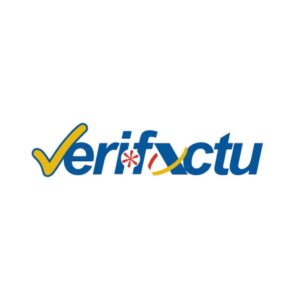Patricia Martínez Ruiz
In an increasingly demanding, competitive and digitized economic environment, the Law for the Creation and Growth of Companies , better known as the Crea y Crece Law is a fundamental lever for promoting the transformation of the business fabric from two fundamental perspectives: tackling the problem of late payment in Spain and enabling a tool, the electronic invoiceto speed up purchase and sale transactions.
The regulatory context of electronic invoicing
Approved in September 2022 and framed within the Recovery, Transformation and Resiliency Plan Recovery, Transformation and Resilience Plan. The aim of this new legislative framework is to promote the digitalization of companies, reduce regulatory barriers, combat late payments and encourage business transition to more competitive environments. One way to do this is to mandatory implementation of electronic invoicing.
In fact, this turn of events represents a decisive step towards the modernization of business processes, positioning technology as a key element for improving the efficiency, transparency and competitiveness of organizations.
In fact, the Crea y Crece Law was born as a response to a historical need, as we pointed out earlier: to structurally address the problem of late payment, which mainly affects small and medium-sized companies and the self-employed in Spain, by means of regulations and solutions.which mainly affects small and medium-sized companies and the self-employed in Spain, through more robust regulations and solutions, covering both dissuasive measures and technological instruments for the control and traceability of payments.
In addition to reducing delinquency, the law seeks to:
- Facilitate the creation of new companies, simplifying procedures and reducing costs.
- Eliminate regulatory obstacles that hinder the development of national or intra-community economic activities.
- Encourage digitalization, promoting the mandatory use of electronic invoicing. electronic invoicing.
- Promote growth and competitiveness, especially of SMEs and the self-employed.
- Positioning the electronic invoicing as the backbone of the business digitalization process.
One of the most relevant and transforming aspects of the Crea y Crece Law is, therefore, the progressive mandatory use of electronic invoicing. electronic invoicing in all commercial transactions between companies and professionals.


How does an electronic invoice work?
It is a document with the same legal validity as a paper invoice, but issued and received in digital format. To comply with legal requirements, it must have a structured format and a system that guarantees its authenticity, integrity and legibility.
According to the Tax Agency the electronic invoice is the one that has been issued and received in electronic format, which replaces the paper document, and retains the same legal value with certain security conditions.
Advantages of electronic invoicing for companies
The implementation of electronic invoicing generates multiple benefits, among the most outstanding, which have already been confirmed by many companies in Spain:
- Reduced operational and administrative costs by eliminating paper-based processes.
- Automation and efficiency in accounting and financial management.
- Greater control and traceability of commercial operations.
- Compliance with tax and regulatory requirements.
- Documentary security: as documents are more difficult to forge, the risk of fraud is reduced.
- Improved cash flow by facilitating more agile collection processes.
However, However, as the Ministry for Digital Transformation and the Civil Service points out, these benefits will not materialize without overcoming major challenges However, as the Ministry for Digital Transformation and the Civil Service points out, these benefits will not materialize unless major challenges are overcome: its adoption by SMEs, which constitute the most important segment of the Spanish and European business fabric, and its acceptance by citizens, its implementation in public administrations, and its implementation in the public sector.The benefits of e-invoicing can only be realized if they are accepted by citizens, implemented by public administrations and the interoperability of e-invoicing systems within and beyond our borders.
Electronic invoicing implementation schedule
The law establishes two phases for its implementation in the private initiative:
- First phase: Companies and self-employed individuals with an annual turnover of more than 8 million euros.
- Second phase: the rest of the companies and self-employed workers.
The timetable for the entry into force of the mandatory electronic invoicing is estimated as follows, depending on the approval of the development regulation:
The first phase was to begin 12 months after the technical regulations were approved.
The second phase would begin 12 months after the first phase.


Electronic invoicing implementation schedule
The law establishes two phases for its implementation in the private initiative:
- First phase: Companies and self-employed individuals with an annual turnover of more than 8 million euros.
- Second phase: the rest of the companies and self-employed workers.
The timetable for the entry into force of the mandatory electronic invoicing is estimated as follows, depending on the approval of the development regulation:
The first phase was to begin 12 months after the technical regulations were approved.
The second phase would begin 12 months after the first phase.
Public and private solution. An integrated approach
The Crea y Crece Law includes the creation of a public invoicing public invoicing platform that allows small companies and self-employed workers to issue, receive and store electronic invoices from a single environment, a model that aims to democratize access to digitalization, especially for those organizations with fewer technological resources.
This beneficial public system, which involves the centralization of invoice management on a single platform, the technological inclusion of SMEs and the self-employed, and the simplification and ease of use, with adapted and accessible interfaces, is a reality in use in the Basque Country, where the TicketBAI system to prevent tax fraud, reduce unfair competition and comply with its tax obligations, has given rise to tools such as FakturArabaThe Provincial Council of Alava offers a web application to issue invoices that comply with the requirements of the TicketBAI system to small companies and self-employed individuals free of charge.
Thus, public and private solutions are expected to coexist, which creates the challenge of ensuring interoperability between platforms. In this context, companies must have approved software, with a certificate of suitability, that ensures integration with public systems and complies with security, traceability and non-alteration of data requirements.
This homogenization of formats is also a step towards the towards a European standardization that will allow:
- Simplification of accounting processes.
- Homogeneous tax compliance.
- Integration with the European digital single market.
*Best practices:
- Continuous training of administrative teams.
- Monitoring of invoice input channels to avoid duplication or loss.
- Management software as a strategic tool for the transition to electronic invoicing, as it requires the adoption of advanced digital solutions.
Electronic invoicing software allows:
- Integrate with existing accounting systems.
- Automate workflows.
- Ensure traceability and tax compliance.
- Automatic reporting to tax authorities.
Investing in technology is not only an operational necessity, but a competitive advantage in an environment where agility and transparency make the difference.
An opportunity to modernize the business fabric
The Crea y Crece Law is not simply a new tax or accounting regulation. It represents a vision of the future: more digital, agile, transparent and resilient companies. Far from being a burden, the obligation of electronic invoicing is an opportunity to review processes, modernize structures and strategically position themselves in the market.
In this context, those organizations that adopt the appropriate digital tools early, train their staff and align with regulatory requirements will be in a better position to grow, innovate and compete, both domestically and internationally.
Why is electronic invoicing mandatory?
Digitization of occupational safety is no longer optional. It is a business, legal and ethical requirements. Tools such as SAP EHSM , SuccessFactors LMS , Enable Now y Joule turn prevention into an intelligent, automated process focused on people’s wellbeing. Technology is today’s greatest ally in building safer, more sustainable and equitable work environments.
Patricia Martinez





